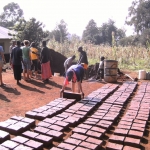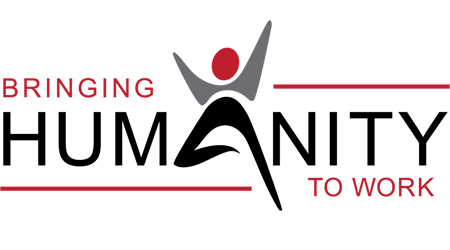 As I landed and emerged from the plane, an onslaught of ‘new-ness’ hit me: The nauseating stench of diesel fuel, the thunder of flights landing and machinery running, the throngs of people bustling about their business, the sheer number of buildings and grey shapes looming in the early morning light, the colours from the advertising boards jarring at me from everywhere. And that was just the airport. Waiting for a bus to take me to my destination, I was overwhelmed by the ‘bigness’ of it all, and the variety of people waiting alongside me for the bus. The locals seemed unfriendly, making no eye contact and standing in silence, clutching their bags against unknown threats, the evident tourists trying to appear nonchalant and confident in this unknown land. No one spoke, everyone hunched against the early morning cold.
As I landed and emerged from the plane, an onslaught of ‘new-ness’ hit me: The nauseating stench of diesel fuel, the thunder of flights landing and machinery running, the throngs of people bustling about their business, the sheer number of buildings and grey shapes looming in the early morning light, the colours from the advertising boards jarring at me from everywhere. And that was just the airport. Waiting for a bus to take me to my destination, I was overwhelmed by the ‘bigness’ of it all, and the variety of people waiting alongside me for the bus. The locals seemed unfriendly, making no eye contact and standing in silence, clutching their bags against unknown threats, the evident tourists trying to appear nonchalant and confident in this unknown land. No one spoke, everyone hunched against the early morning cold.
I was filled with a sense of dread and horror at coming to this unfriendly, cold and grey place. What had I done? It was culture shock in the extreme – I was hit by a sense of displacement and unreality, shying away and almost cowering against the unfamiliarity of my new home.
And where had I come to?
London Heathrow, returning home from a three week trip to Namibia in Southern Africa, where I volunteered at a wildlife sanctuary in the open countryside and 40 degree heat.
The contrast between my simple life on a Namibian farm and Namibia’s colourful people, with Heathrow’s grey people and super technology, had shocked me into seeing the UK from a new perspective.
After 3 weeks of life in simple conditions (a permanent tent, with an outside shower and toilet block, little electricity, and a ‘shop’ that opened on the farm only twice a week selling a few soft drinks, beer and other simple pleasures), hard work (working 8 hours a day doing anything from preparing food, digging animal pens, painting fences, testing the electric border fences on a 3 mile hike, or checking the camera traps) and caring for animals (including babysitting a baby baboon overnight in my tent), the shock of ‘modern life’ in the UK was a gross incongruence. Something had clearly changed in me during this volunteer experience.
So what had changed, and how? Was it the physical work – steady, and sometimes hard? True, I left with blisters on my hands from digging the new mongoose pen, and from handling the blunt knives we had to prepare the animal food, and innumerable scratches from the ubiquitous thorn bushes. I lost some weight from the constant activity and simple but tasty food, and I was tanned from working outdoors in the hot African sun. So there was physical change.
The emotional and intellectual change was even more important. Life was very simple on the farm. With little electricity, it seemed wasteful to use our headtorches to stay up late, so early nights and rising with the sun became a new habit. It was quiet (beyond the noise of the lions roaring, the peacocks ca-cawing, the sheep bleating and the baboons chattering), and there was nothing else to do and nowhere else to be.
It left time and space for that most human of things: Building relationships. Staff and volunteers mixed, a shared value and goal bringing us together from across the globe – British, Australians, Mexicans, Norwegians, Belgians, Swiss, and South Africans. Ages from 18 to 60 or so. All here to work and to experience something completely different.
Did I like everyone there? No. Did I respect their commitment and efforts to make a difference in a land far from home? Yes. Did we rub each other up the wrong way at times? Oh yes. And yet the simple work gave me time to reflect on my own reality and experiences, and to look at the relationships and my contribution to them in a new light. I noticed an almost tribal urge and desire to be part of the group, and a temptation to fit in by defining others as ‘outside’ the group. I noticed the alliances being formed, and then the friendships, sometimes between unlikely pairs! I noticed people’s ‘true selves’ emerging as they settled into their new environment. I was surprised and delighted by the impact a 22 year old from Switzerland had on me – her sheer positivity and smiling nature brought such simple joy to me and others. I discovered things about myself that I liked, and some that I didn’t.
After only a few days I noticed how important the little pleasures in life became: To have a cold or even cool drink of water, the shower at the end of the day to wash the dust away, a piece of fruit as part of a meal in a country which is mostly desert and grows little fruit or vegetables. I appreciated the pleasure in finding a spot in the shade where the breeze might find me during our lunch break.
I also had some incredible experiences handling beautiful animals – baboons, a tame cheetah, caracals and meerkats, to name but a few. And I got ‘time out’ to reconnect with life – real life, away from the mundanely familiar routine of work and home in the UK. It’s changed my outlook upon coming home – my relationships, my approach to work, and how I think about a range of things. I grew as a person, learned new skills and became more self-reliant within the context of the team I worked with, and it’s enabled me to see my life at home differently. Not bad for a 3 week trip.
So, how could we in the business community benefit from volunteering? Well first, its link to employee satisfaction and engagement are well known. And the experience of volunteering itself develops leadership and communication skills. In research by “Power Skills”1, interviewing 90 women in leadership positions, they discovered that:
- 83% of participants reported that they acquired, improved or developed their leadership skills due to volunteer participation
- 78% reported improvement in their communications skills
- 62% enhanced problem-solving skills
- 57% improved organisation/ multitasking
- 53% enhanced marketing skills
So just imagine the potential for organic leadership development, by doing a volunteer placement, and for the satisfaction and engagement reward of creating a positive and visible impact on a community….. And what if, to make it a ‘sure thing’, you added a structured leadership development programme, facilitated by experts, pre, during and after your placement? Now you’re really maximising the potential for your team and for the recipient community.
Phoenix can help put in place just such a programme to support any of your CSR initiatives or programmes, in the UK or abroad.

Phoenix is all about ‘Bringing Humanity to Work’, in these three ways:
- Humanity at Work
Building & sustaining positive relationships, Releasing your authentic leadership style, Igniting & releasing individual & team potential, Celebrating the power of diversity and working styles - Harnessing your Personal Humanity
Identifying your values/ passions/ goals, Setting life & career goals, Embracing the power of choice, Igniting personal growth & change - Creating Positive Change in the World
Harnessing business to support charity & community, Linking business and communities for joint growth and learning, Role modeling humanitarian spirit (& reaping the benefits!)
Our work is underpinned by these key values and principles:
- As human beings, we all have positive intentions, and different ways to achieve them
- We’re all capable of positive change in ourselves, and in facilitating it in others
- What we learn in life, we can bring to work, and vice versa
Phoenix believes in facilitating “Change that is more than skin deep”
- Facilitating learning & change for life
- Enabling sustainable deep change
- Linking the learnings at work and personal levels for a ‘total human’ impact
We can help you to develop these key areas, step changing business relationships and leadership skills to deliver better business results. We go way beyond the brief to create real change and to open eyes and minds to potential and possibilities.
To find out more about our Leadership programmes, facilitation or coaching interventions, contact Jo Wright on [email protected] or 020 3417 9284.
Let’s really bring humanity to work – in every sense of the phrase!
